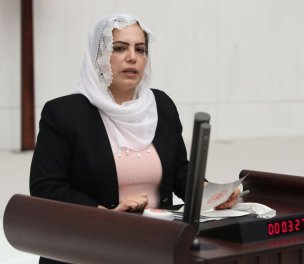Click to read the article in Turkish
The Constitutional Court has ruled that censoring a prisoner's letter violated freedom of communication.
Rahmi Çağan, who is behind bars for "being a member of an illegal organization," had sent a letter to his spouse. In the letter, Çağan talked about his daily life and a dream he had recently had, where he gets out of prison and finds a job at a factory.
The disciplinary board of the prison scribbled over the part about the dream before sending the letter to the addressee.
The board's decision was based on the justification that "different methods such as dreams are used for organizational communication in the crime group that the applicant is convicted of," as quoted in the high court verdict.
Following the censorship, Çağan filed a complaint with the Judgeship of Penal Execution, alleging that it was unlawful. After his complaint and the appeal he filed later were dismissed, he filed an individual application with the Constitutional Court.
Examining the application, the high court concluded that the intervention met the requirement of legality as it was based on article 68 of the Law on Enforcement of Penal and Security Measures.
Requirements of a democratic order
After this finding, the court decision explained, it should be evaluated whether the intervention was in line with the requirements of a democratic social order.
Citing several previous high court verdicts about interventions in prisoners' letters, the ruling said "the public authorities and the courts of first instance are obliged to demonstrate, on relevant and sufficient grounds, that the interference with the freedom of communication corresponds to a pressing need and is proportionate."
The cases cited in the ruling included those of Ahmet Temiz, Muhittin Pirinççioğlu, Cihat Ayik and Hacı Ali Baştürk.
The high court concluded that freedom of communication guaranteed under article 22 of the Constitution was violated.
A copy of the ruling will be sent to the Dinar Judgeship of Penal Enforcement and Çağan will be paid 3,000 Turkish lira for immaterial damages. (HA/VK)






